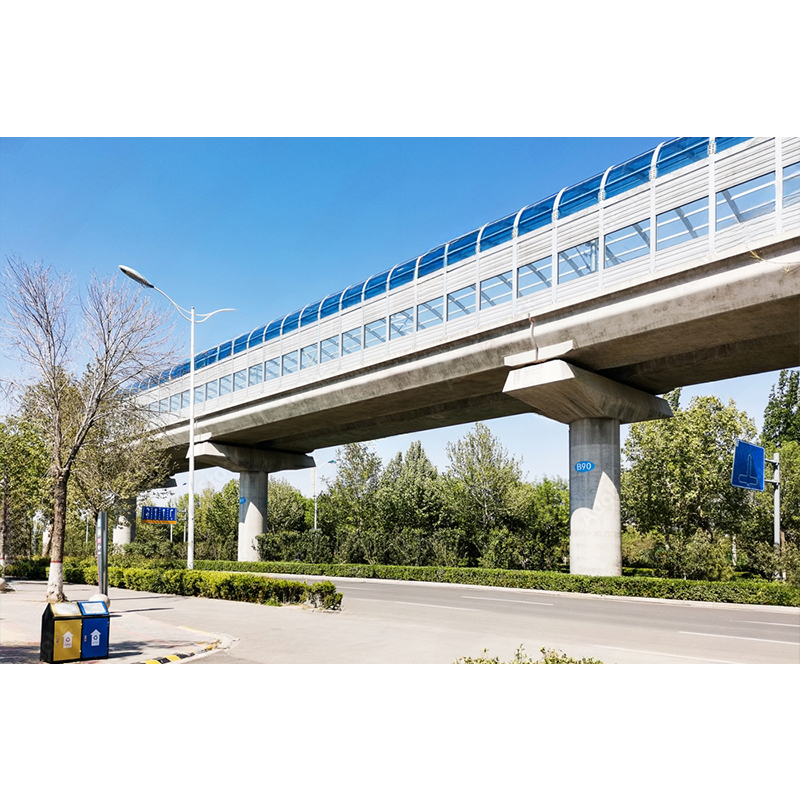Understanding the Structural Excellence of Steel Box Girder Bridges

Steel box girder bridges have become a staple in modern civil engineering, representing an evolution in bridge design that emphasizes efficiency, strength, and durability.
Their growing popularity is tied not only to their aesthetic appeal but also to their technical advantages and adaptability to complex site conditions.
This blog explores the structural advantages, fabrication methods, design variations, and real-world applications of steel box girder bridges.
Whether you're a project manager, civil engineer, infrastructure planner, or procurement officer, this detailed guide will help you understand the value and performance of these advanced steel structures.
What Are Steel Box Girder Bridges?
Steel box girder bridges are structures where the main load-carrying components are hollow steel boxes, formed by welding together steel plates into closed rectangular or trapezoidal cross-sections.
These box girders support the deck and transfer loads efficiently to the bridge piers and abutments.
The closed shape provides exceptional torsional rigidity, making them ideal for curved road alignments, skewed crossings, and areas prone to lateral loads such as wind and seismic forces.
Key Engineering Features
1. Torsional Strength
Thanks to their closed-cell design, box girders resist twisting under asymmetric or dynamic loads, making them highly stable.
2. Efficient Use of Materials
Box girders are designed to minimize material use while maximizing strength. High-tensile steel like Q355B or ASTM A572 Grade 50 is commonly used.
3. Compatibility with Composite Decks
Steel box girders can act compositely with concrete decks, enhancing structural behavior and allowing slimmer profiles.
4. Streamlined Aesthetics
Due to their compact form, they are often preferred in urban settings where appearance and structural clearance matter.
Fabrication Process
1. Design Engineering
Detailed finite element modeling is used to simulate loads, deformations, and stress concentrations.
2. Plate Cutting and Welding
Steel plates are CNC-cut and assembled into box sections using automated welding. Precision is critical for weld quality.
3. Surface Treatment
Anti-corrosion coating, hot-dip galvanizing, or weathering steel options ensure long-term durability.
4. Transport and Assembly
Depending on project size, girders are delivered in modules or full lengths and assembled on-site using cranes or launching gantries.
Applications Across Sectors
Highway and Urban Overpasses: Ideal for long spans with limited vertical clearance.
Railway Crossings: Supports heavy dynamic loads and offers vibration resistance.
Airport Taxiway Bridges: Engineered for wide clear spans with high wheel loads.
Industrial Access Bridges: Offers fast deployment in logistics or mining zones.
Real-World Example: Industrial Bridge in Vietnam
WZH Build recently completed a 64-meter steel box girder bridge for an industrial park in northern Vietnam.
Designed to withstand typhoon-grade winds and seismic activity, the bridge featured double-cell box girders with epoxy primer and PU finish coating.
Erection was completed in 14 days, ahead of schedule.
Maintenance & Lifecycle
Coating Inspection: Every 3–5 years, depending on the exposure category.
Bearing Maintenance: Elastomeric or spherical bearings should be checked for compression and shear wear.
Joint Sealing: Expansion joints should be resealed periodically to prevent leakage.
Structural Monitoring: Advanced sensors can be embedded for real-time stress tracking.
With proper maintenance, steel box girder bridges can easily surpass a 50-year service life.
Why Choose WZH Build?
20+ Years of Steel Fabrication Experience
ISO 9001 & CE Certified Processes
Custom Design, Fabrication, and On-Site Assembly
International Shipping and Support
WZH Build is your one-stop solution for engineered steel structure solutions, including box girder bridges of all scales.





